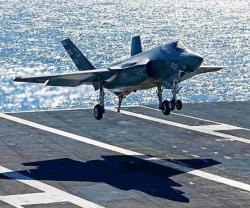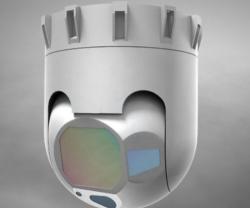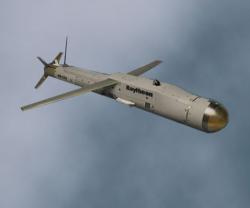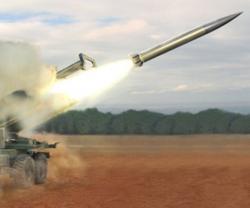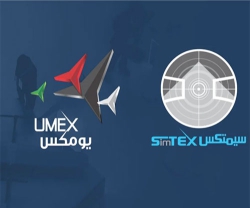The U.S. Navy completed a series of test shots using Raytheon Company’s SeaRAM anti-ship missile defense system, taking out several targets in a variety of scenarios that mimic today’s most advanced threats to naval ships.
The series of two shots included one in which two supersonic missiles were inbound simultaneously, flying in complex, evasive maneuvers. In both flights, SeaRAM detected, tracked and engaged the threats, and fired Rolling Airframe Missile Block 2 guided missiles which successfully intercepted the targets.
“SeaRAM achieved a new level of success today, intercepting targets under high-stress conditions. The system demonstrated once again that it can provide the sophisticated protection warfighters need,” said Rick Nelson, Vice President of Raytheon’s Naval and Area Mission Defense product line.
The tests were conducted on the Navy's Self Defense Test Ship off the coast of Southern California.
Raytheon’s Phalanx is a rapid-fire, computer-controlled radar and 20mm gun system that acquires, tracks and destroys enemy threats that have penetrated all other ship defense systems.
Intended to enlarge Phalanx’s keep-out range against anti-ship missiles, rotary- and fixed-wing aircraft, unmanned aircraft systems and other evolving threats, SeaRAM anti-ship missile defense systems use advanced Phalanx Block 1B sensors and replace the gun with an 11-round Rolling Airframe Missile guide.
Raytheon Company, with 2015 sales of $23 billion and 61,000 employees worldwide, is a technology and innovation leader specializing in defense, civil government and cybersecurity solutions.
With a history of innovation spanning 94 years, Raytheon provides state-of-the-art electronics, mission systems integration, capabilities in C5I (command, control, communications, computing, cyber and intelligence), sensing, effects and mission support services.


